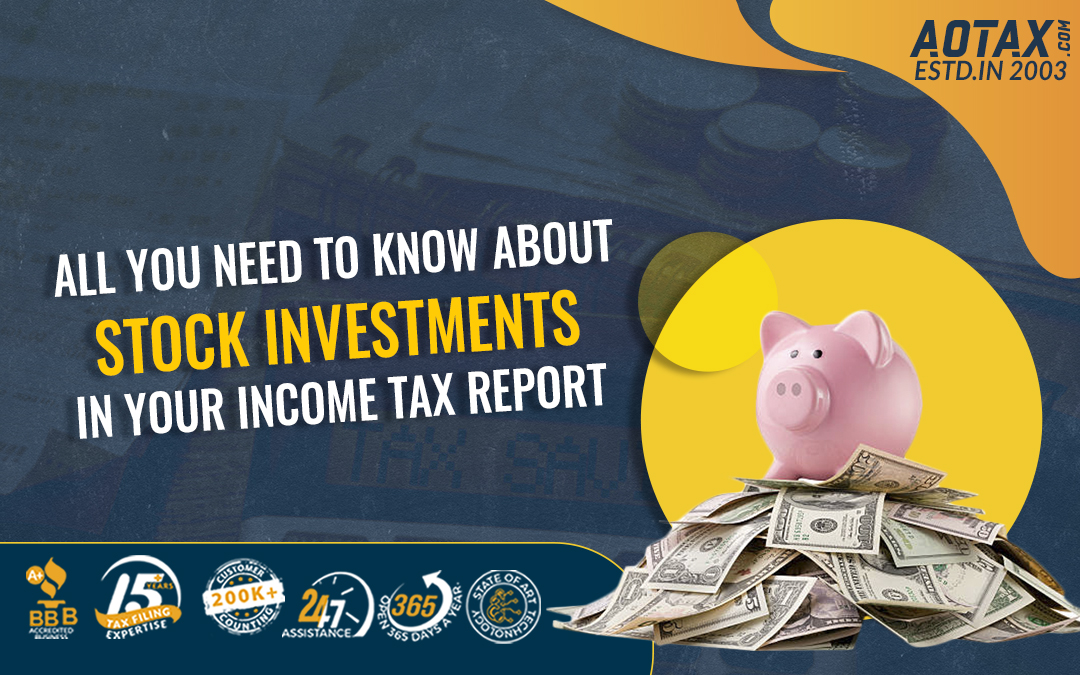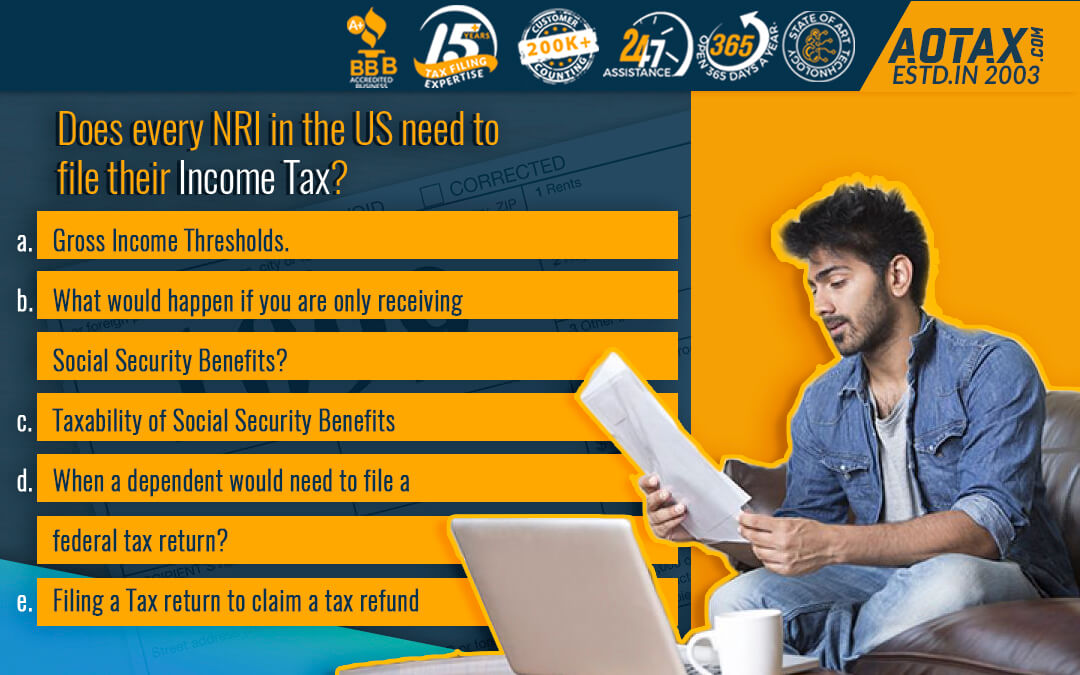All you need to know about Stock Investments in your Income Tax report

All you need to know about Stock Investments in your Income Tax report
If you are investing in the Stock Market, then it is one of the best methods by which you would be able to increase your net growth. The money you have or in other words your money is being put to do work for you if you are investing in stocks. The money which you would be investing in can help you earn dividends and interest as well. So, by the stock investment, you are able to earn a lot of dollars in return.
However, stock investments can lead to certain complications in your tax situations as well. The investments into stocks must be reported on your federal tax returns. So, if you are earning any interest or dividends from your stock investments then you would have to pay taxes on those earnings. Mainly, there are two situations when your investments into stocks can affect your tax returns i.e. first are when you earn from your investments, and the second is if you are selling your investments for either a profit or loss.
So, let us check out the various scenarios that are associated with the tax rules associated with either the purchase or sale of stock investments.
Purchase or Sale of investment
In case, you have sold some of your investments in the tax year 2020 you would pay taxes on the capital gains you have obtained. Capital gains can be said to be the profits that are earned from investments.
The amount of taxes that would be owed to pay in case of the sale of investments would be depending on some factors. There would be two categories into which the capital gains would be divided i.e. short-term holdings and long-term holdings.
Short-term holding would be the one you had for a period which is less than a year and it can be taxed up to 37%. On the contrary, long-term holdings are those which you can hold for more than a year. Long-term investments are those which have been held for more than a year. These investments are taxed depending on your income earned and the tax rates can vary from 0%, 15%, or even 20%.
Interests and dividends
Even if you have not sold any of your investments in the year 2020, you would have to pay federal income tax on the dividends and interest.
In case, you are the owner of stocks or index funds you would be paid the dividends periodically. In a similar manner, if you are earning some interest on any bonds you have purchased it is necessary to report the interest earned in your tax returns. You would have to pay the respective taxes on the interest earned as well.
Reporting stock investments on your tax returns
Your investment in stocks would start complicating your tax returns. You will have to navigate several additional forms which you would need for reporting the investments made into stocks on your federal tax returns for the year 2020.
You can begin the procedure by gathering all the forms and documents which you have obtained. These additional forms would include 1099-DIV forms which would highlight how much had been paid to you by each company in the form of dividends. You might receive Form 1099-B which would be helpful in demonstrating any capital gains which you have obtained throughout the tax year. The Form 1099-B would help in the calculation of the capital gains or loss and post it on your Form 1040.
Moreover, if you are working with a tax professional or taking help from tax software you must ensure that you are completely organized and have all the tax forms in hand which you have received.
Conclusion
Hence, with this information, it would become quite easier for you to understand the tax implications if you have an investment portfolio.






Recent Comments